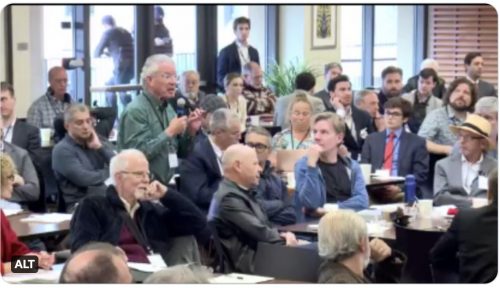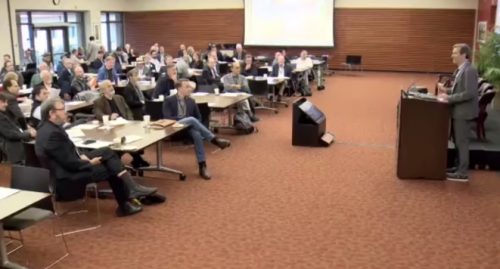Inside Higher Ed covers that godawful conference.
One attendee of the conference, who asked to speak anonymously as not to run afoul of the event’s supporters or critics, said the room “was not simply full of right-wingers there to hear fringe right-wingers,” as “many from around the country are alarmed at intolerance on both sides of the political spectrum.”
“Both sides do it”. I’ve heard that somewhere before. Maybe they should have included a few people who weren’t fired for sexism or racism or misogyny to show off the Intolerant Left.
At the same time, the attendee said, the meeting “required no scholarly rigor or counterargument, rather it proved mostly a feel-good session for an unfortunate mix of many powerful public voices who deserve criticism, and a few brave people who take unpopular positions and actually deserve to be heard. Clearly, the conference organizers were trying to be provocative in letting the most outrageous be heard, but that undermined the seriousness of harm done to the less outrageous but equally censored speakers.”
The most hilarious comment comes from Jonathan Haidt.
Referencing Cochrane’s additional complaint that liberals had been invited to speak but refused, speaker Jonathan Haidt, Heterodox Academy co-founder and Thomas Cooley Professor of Ethical Leadership at New York University’s Leonard N. Stern School of Business, said that there was nevertheless
more diversity, more ideological and political diversity, in the room today than in probably any other room anywhere in any of America’s top 100 universities this year.
He is correct that diversity is underrepresented in academia. However, here is a candid photo of the attendees at the con:
I think most universities do better than that room full of old white men. Not better enough, but much better than that.
Also, yeesh, that was a tiny conference.









